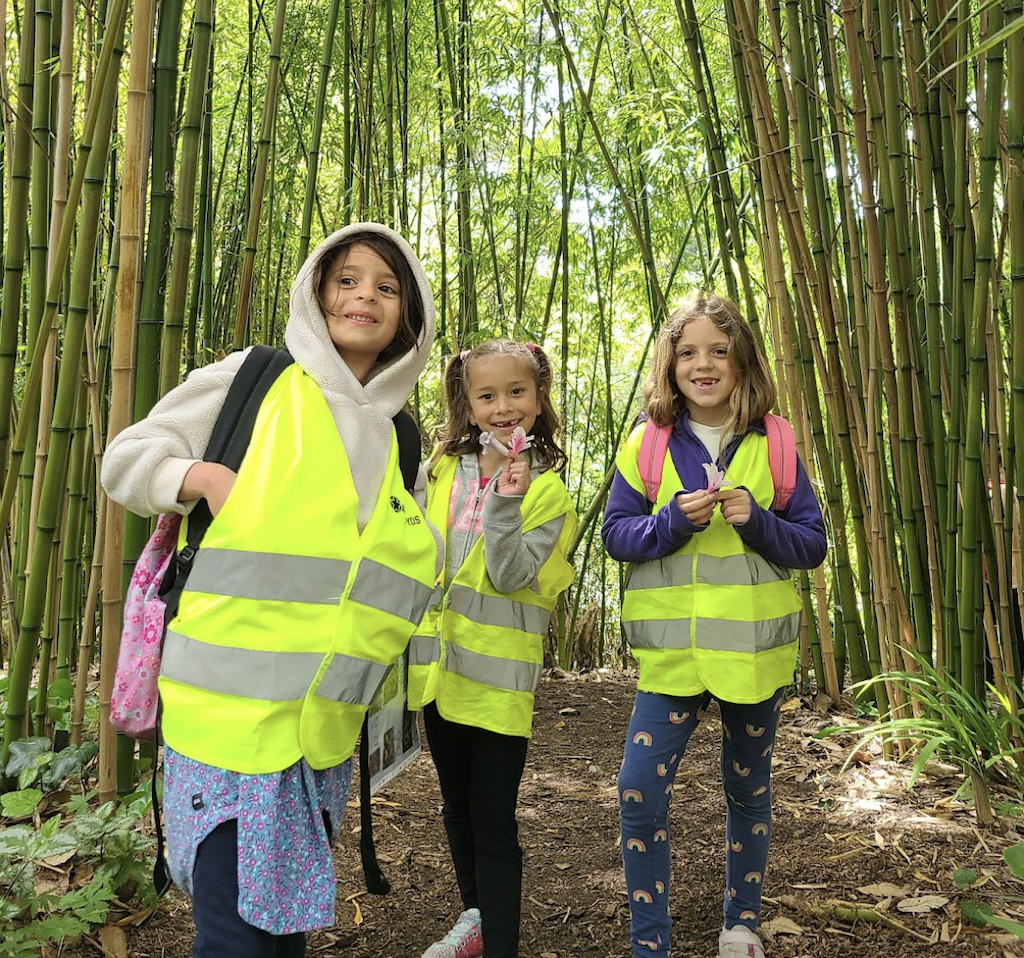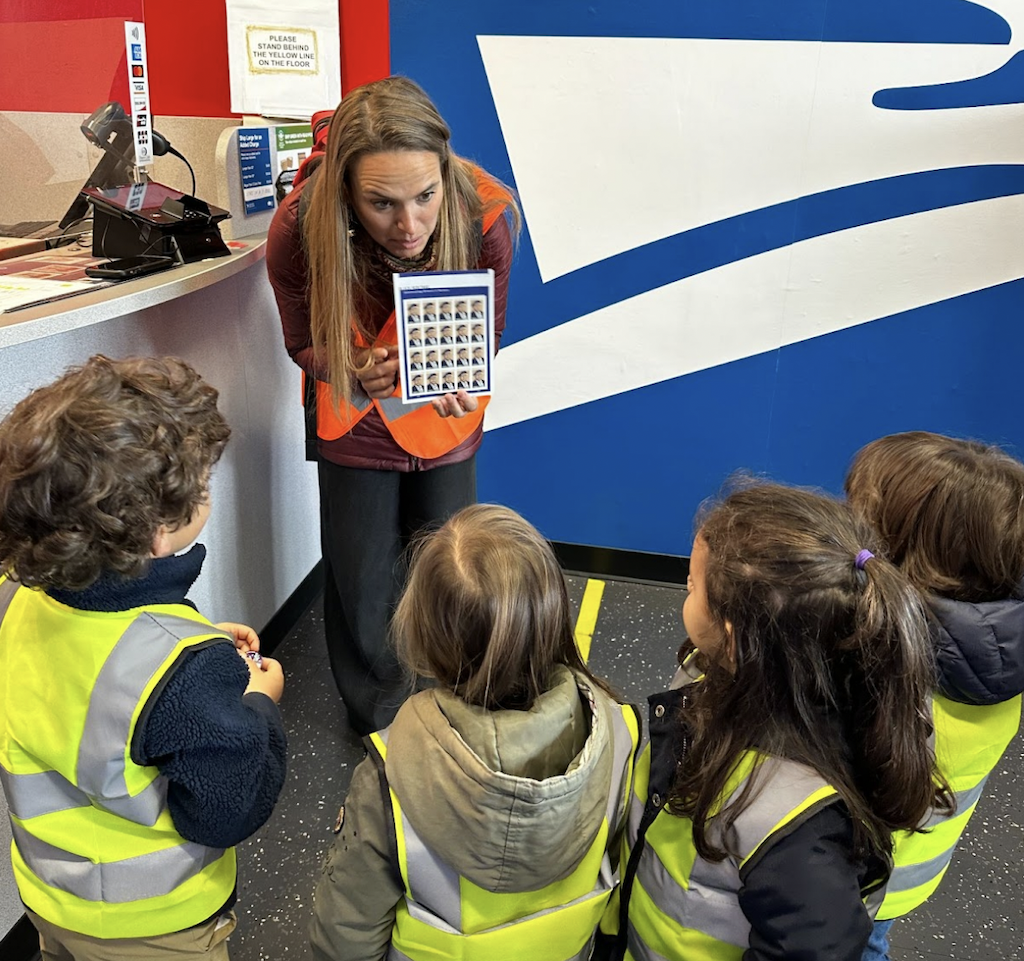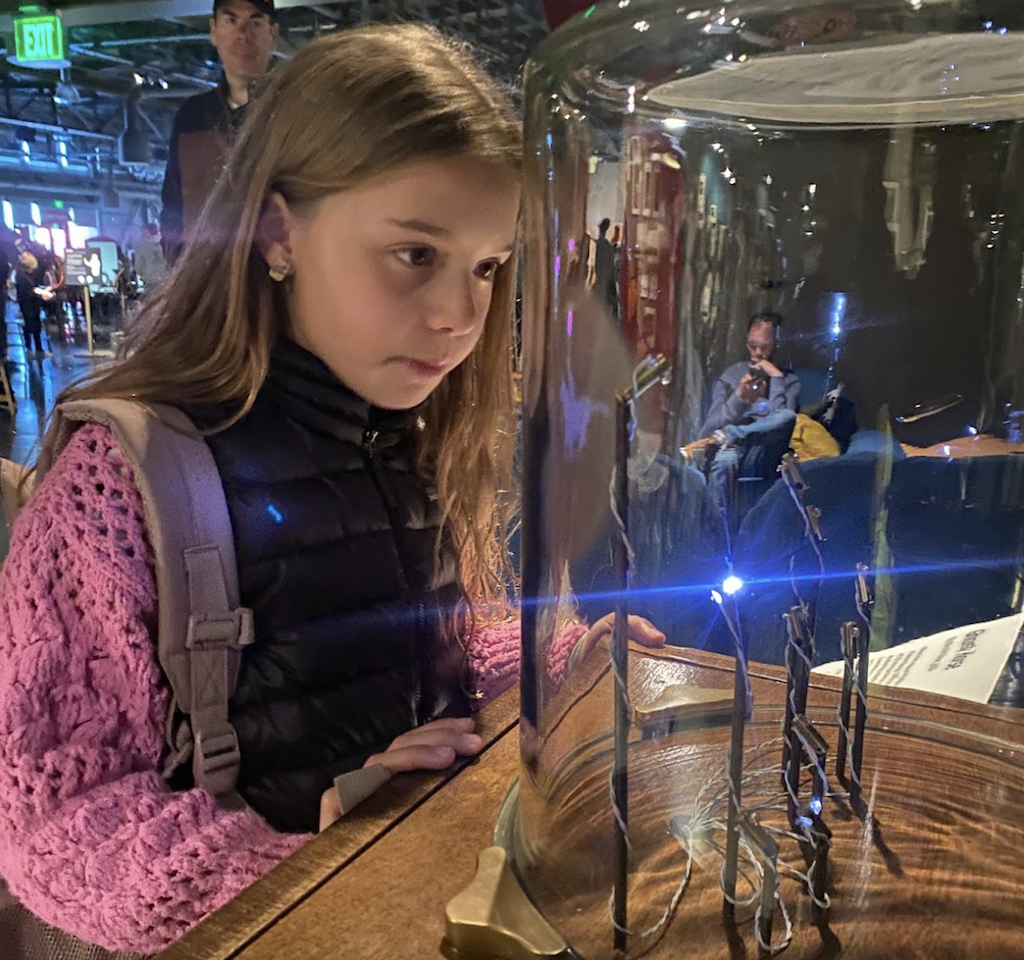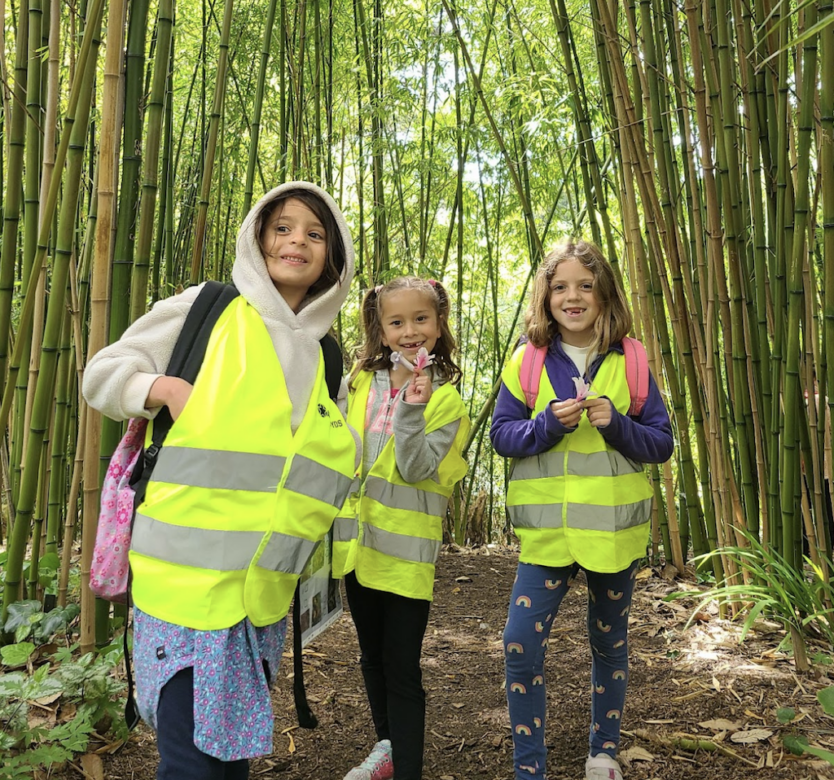
We are very excited to be sharing monthly messages with you about how our Teaching and Learning curriculum and pedagogy are uniquely organized and applied every day at La Scuola. We know students are capable of doing and communicating their abilities and interests in extraordinary ways and we look forward to sharing these experiences each month. This month we will take a look at the benefits of field trips for our students. Read on for more information on the educational benefits of field trips and how they impact learning at La Scuola.

Field trips are in motion this year, and some classes have been out in the field including to an art museum, science academy, and into nature. Teachers identify and develop field trips that best link the classroom inquiry with local exhibits and experiences.
We know students are capable of doing and communicating their abilities and interests in extraordinary ways, and visiting a new environment inspires that extraordinary. “Can we pause for a moment? I would like to sketch this [tree python],” asks an eager 3rd grader.
It’s easy to see that there are many educational benefits to field trips. A field trip asks students to balance intellectual and physical skills, as well as personal and social skills in non-routine settings with often a new combination of adults together (shout out to parent volunteers!). Students are walking, thinking, listening, helping, talking, and showing on field trips. Students are running, eating, and laughing.
Educational Benefits of Field Trips
Fosters Cross-Disciplinary Thinking

In September, our Grade 3 classes went into the field to validate and expand their developing understanding that living and nonliving things in an ecosystem are interconnected and impact each other. At the Academy of Sciences, they spent the day actively viewing global ecosystems and recognizing how they are sharing the planet, one of the six transdisciplinary themes in the Primary Years Program (PYP). Inquiry also continued outdoors with a treasure hunt at Golden Gate Park where students enjoyed discovering all the microsystems of living and nonliving things that inhabit the Park. Fostering cross-disciplinary thinking, homeroom teachers and our environmental studies teacher collaborated on this field trip.
Fosters Open-Mindedness

Also, in September, our Grade 4 & 5 classes walked to the Asian Art Museum to explore the current programs. They participated in an interactive fish exhibit, called Sketch Ocean. Students designed sea-creatures that were scanned and entered an oversized digital aquarium. They interacted with projection and sensors, learning more about the movement/migration of animals and shapes. Their drawings even made it to a museum in Tokyo. Homeroom teachers and our Art teacher collaborated on this field trip – helping students make connections to what they have been working on in their art class. The exploration will continue on campus with the Atelerista – students will work with light movement of space and shapes.
Inspires the Senses and Appreciation of Beauty through Joyful Color

Seeking to make global connections in all aspects of the learning, students experienced the artistic digital project Continuity – centered on nature, curated by teamLab from Tokyo, Japan – also at the Asian Art Museum. “Everything exists in a long, fragile yet miraculous borderless continuity of life,” says teamLab founder Toshiyuki Inoko.
Fosters Connection in a Disconnected World

We will enjoy more field trips ahead, across our PreK-Grade 8 program, that tie to transdisciplinary inquiry (preschool and elementary years) and interdisciplinary investigations (middle years) as well as other school initiatives, including community service. When students go into the field together, they learn more about a topic, meet new people or communities and discover more about each other. As educators, we look to these many opportunities to bring local and global issues into our fabric of learning.

If you have any questions or want to share your child’s experiences, please reach out, we would love to hear from you. Grazie!
Sally Peterson
Director of Teaching & Learning
Share this Post

